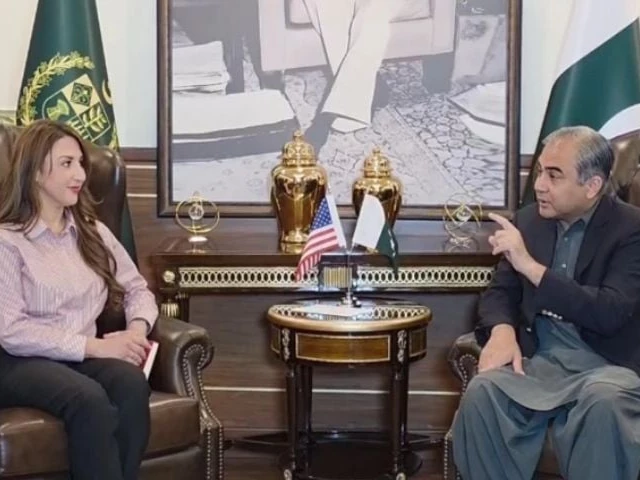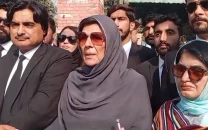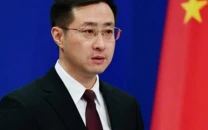Mohsin Naqvi thanks Trump for role in Pakistan-India ceasefire
Federal interior minister also thanked acting US Ambassador Natalie Baker for Trump's "service to humanity.”

Pakistan’s Interior Minister Mohsin Naqvi credited US President Donald Trump with helping avert a potential nuclear conflict between Pakistan and India, saying his diplomatic efforts led to a key ceasefire agreement, Express News reported.
Speaking after a meeting with Acting US Ambassador Natalie Baker in Islamabad, Naqvi said Trump’s intervention “saved the region from horrific destruction” and called it “a service to humanity.”
He also thanked the US envoy for Washington’s role in promoting stability in South Asia.
Naqvi welcomed Trump’s “positive views” on Pakistan’s leadership and expressed Islamabad’s desire to deepen bilateral cooperation with the United States.
The meeting focused on US-Pakistan relations, mutual interests, regional security, and the post-ceasefire situation between the two South Asian neighbours.
Baker said the United States values its strong ties with Pakistan and remains committed to cooperation across multiple sectors.
Interior Secretary Khurram Agha was also present at the meeting.
Earlier, tensions between Pakistan and India escalated sharply after an attack on April 22 in Pahalgam, located in Indian Illegally Occupied Jammu and Kashmir (IIOJK), which resulted in the deaths of 26 civilians.
India immediately blamed Pakistan-based elements for the incident, though no evidence was publicly presented. Islamabad strongly rejected the allegations.
In the days following the attack, India undertook a series of retaliatory measures, including closing the Wagah-Attari border, cancelling Pakistani visas, suspending the Indus Waters Treaty, and reducing diplomatic ties. Pakistan condemned these actions, describing them as provocative and labelling the treaty suspension an “act of war”.
Military activity rapidly intensified, with both sides reportedly exchanging missile strikes and drone incursions. Pakistan launched “Operation Bunyan Marsoos,” targeting Indian military assets and claiming to have downed several Indian fighter jets and intercepted dozens of drones.
India, in turn, was reported to have carried out airstrikes and missile attacks on Pakistani cities and installations.
The conflict drew international concern, especially given both countries’ status as nuclear-armed powers. The United States, through President Donald Trump and Secretary of State Marco Rubio, engaged in urgent diplomacy to de-escalate the situation.
Their efforts culminated in an announcement on May 10 that both countries had agreed to a full and immediate ceasefire.
Following the ceasefire, senior military officials from both countries held direct talks via a hotline, agreeing to uphold the truce and consider troop reductions along the border.





















COMMENTS
Comments are moderated and generally will be posted if they are on-topic and not abusive.
For more information, please see our Comments FAQ